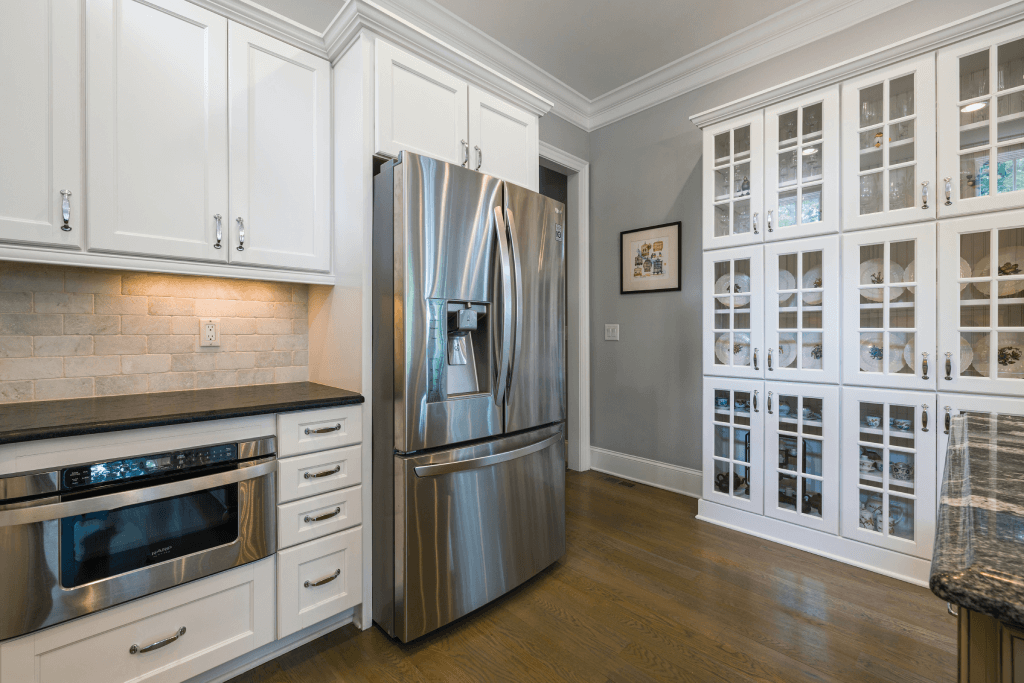Storing coffee properly is crucial to maintain its quality and taste. Whether you're a coffee enthusiast or just want to make sure your morning cup of joe is as delicious as possible, understanding the science behind coffee storage is key.
We will provide you with expert insights and practical tips on how to store coffee in the fridge for maximum freshness. We will also debunk common misconceptions and help you avoid common mistakes that can ruin your coffee.
So, if you're ready to elevate your coffee experience and never have a stale cup again, let's dive in and discover the secrets to perfect coffee storage in the fridge. Get ready to savor every sip!
Keywords: coffee storage, store coffee in the fridge, freshness, quality, taste.
Does coffee go bad?
Coffee, like any other perishable food item, does have a shelf life. However, it doesn't necessarily go bad in the traditional sense. Rather, it loses its freshness and flavor over time. The quality of coffee deteriorates due to exposure to air, moisture, heat, and light. These elements cause the coffee beans or grounds to oxidize, resulting in a stale taste and aroma.
The rate at which coffee goes bad depends on various factors, including the type of coffee, the packaging, and the storage conditions. By understanding these factors, you can extend the freshness of your coffee and enjoy a flavorful cup every time.
Factors affecting coffee freshness
To understand how long coffee can be stored in the fridge, it's essential to consider the factors that affect its freshness. There are several key elements that play a role in determining the shelf life of coffee:
1. Roast level: The roast level of coffee beans affects their freshness. Lighter roasts tend to have a shorter shelf life compared to darker roasts. This is because lighter roasts retain more moisture, making them more prone to spoilage.
2. Packaging: Proper packaging is crucial for preserving the freshness of coffee. Coffee beans or grounds should be stored in airtight containers that prevent exposure to air, moisture, and light. Avoid using transparent containers, as light can degrade the coffee.
3. Temperature: Temperature is a critical factor in coffee storage. Coffee should be kept in a cool, dry place away from heat sources. Exposure to heat can accelerate the oxidation process and lead to a quicker loss of flavor.
4. Humidity: Moisture is the enemy of coffee freshness. High humidity can cause coffee beans or grounds to absorb moisture, resulting in a loss of flavor and the potential growth of mold. It's important to store coffee in a dry environment.
5. Oxygen exposure: Oxygen is another factor that can cause coffee to go stale. When coffee comes into contact with air, it undergoes oxidation. This process degrades the flavor and aroma of the coffee. Airtight storage containers can help minimize oxygen exposure.
Understanding these factors will help you make informed decisions about storing your coffee and ensure maximum freshness and flavor.
How long can you store coffee beans in the fridge?
Now that we've covered the factors affecting coffee freshness, let's explore how long coffee beans can be stored in the fridge. The fridge is a popular storage option for many coffee lovers, as it provides a cool and dark environment. However, it's important to note that storing coffee beans in the fridge is not always the best option.
Coffee beans can be stored in the fridge for about 2 to 3 weeks, depending on the factors mentioned earlier. However, it's crucial to keep in mind that the fridge can introduce moisture, which can compromise the flavor of the coffee. Moisture can cause the beans to become stale and even develop a moldy taste.
To mitigate the risk of moisture exposure, it's recommended to store coffee beans in an airtight container before placing them in the fridge. This will help maintain the freshness and prevent any unwanted flavors from seeping into the beans.
It's also worth mentioning that freezing coffee beans can be a viable option for long-term storage. When properly stored in an airtight container, coffee beans can be kept in the freezer for up to 3 months without significant flavor degradation. Freezing coffee helps to preserve its freshness by slowing down the oxidation process. However, it's essential to thaw the beans completely before grinding and brewing to avoid moisture-related issues.
How long can you store ground coffee in the fridge?
If you prefer using ground coffee instead of whole beans, you may be wondering how long you can store it in the fridge. Ground coffee has a larger surface area compared to whole beans, which means it can lose its freshness more quickly.
On average, ground coffee can be stored in the fridge for about 1 to 2 weeks. However, it's important to note that the flavor and aroma of ground coffee can deteriorate rapidly, especially when exposed to moisture and air. It's best to grind your coffee beans just before brewing to ensure the freshest cup of coffee possible.
To extend the shelf life of ground coffee stored in the fridge, follow the same precautions as you would with whole beans. Place the ground coffee in an airtight container before refrigerating to minimize moisture exposure. This will help maintain the flavor and aroma for a longer period.
Tips for storing coffee in the fridge
Now that you know how long coffee can be stored in the fridge, let's explore some tips for optimal coffee storage:
1. Use an airtight container: Invest in airtight containers specifically designed for coffee storage. These containers will help keep the coffee fresh by preventing exposure to air, moisture, and light.
2. Store in small batches: Instead of storing a large quantity of coffee in the fridge, consider storing smaller batches. This way, you can ensure that each batch remains fresh and useable.
3. Keep away from strong odors: The fridge can absorb odors from other food items. To prevent your coffee from picking up unwanted flavors, store it away from strong-smelling foods.
4. Avoid frequent temperature changes: Temperature fluctuations can impact the quality of coffee. Keep the fridge temperature consistent and avoid opening the coffee container unless necessary.
5. Grind just before brewing: Grinding coffee beans releases oils and flavors. To preserve these qualities, grind your coffee beans just before brewing. This will ensure a fresher and more flavorful cup.
By following these tips, you can prolong the freshness of your coffee and enjoy a delicious cup every time.
Other storage options for coffee
While the fridge can be a suitable option for short-term coffee storage, there are alternative methods that can help maintain freshness:
1. Pantry storage: Storing coffee in a cool, dry pantry is a popular option for many coffee enthusiasts. Make sure to use an airtight container and keep the coffee away from light, heat, and moisture.
2. Freezing coffee beans: As mentioned earlier, freezing coffee beans can be an effective way to extend their shelf life. When properly stored in an airtight container, coffee beans can be kept in the freezer for several months without significant flavor loss.
3. Vacuum-sealed bags: Vacuum-sealed bags are another option for preserving the freshness of coffee. These bags remove excess air and create a sealed environment that helps maintain the flavor and aroma of the coffee.
Consider experimenting with different storage methods to find the one that works best for you and your coffee preferences.
Signs that your coffee has gone bad
It's essential to be able to identify when your coffee has gone bad. Here are some signs that indicate your coffee may no longer be fresh:
1. Stale aroma: If your coffee no longer has a strong, aromatic scent, it may have lost its freshness.
2. Dull taste: Coffee that tastes flat, bland, or lacks the usual flavor notes may be past its prime.
3. Moldy or rancid smell: If your coffee has a musty or foul odor, it may be a sign of mold or rancidity. Discard the coffee immediately.
4. Oily appearance: Coffee beans or grounds that have developed an oily sheen may indicate that they have gone bad.
If you notice any of these signs, it's best to discard the coffee and brew a fresh batch. Keeping track of the storage time and using your senses to assess the coffee's quality will help you avoid drinking stale or spoiled coffee.
The impact of storing coffee in the fridge on taste and quality
While the fridge can provide a cool and dark environment for coffee storage, it's important to consider the potential impact on taste and quality. Storing coffee in the fridge can introduce moisture, which can affect the flavor and aroma of the coffee.
When coffee beans or grounds absorb moisture, they can become stale and develop off-flavors. Additionally, the fridge can absorb odors from other food items, potentially altering the taste of the coffee. These factors can result in a less enjoyable coffee experience.
To minimize the risk of moisture and flavor contamination, it's crucial to store coffee in an airtight container and use it within the recommended time frame. By following proper storage practices, you can help preserve the taste and quality of your coffee.
Common misconceptions about coffee storage
There are several misconceptions surrounding coffee storage. Let's debunk some of the most common ones:
1. Storing coffee in the freezer is the best option: While freezing coffee can help extend its shelf life, it's not necessarily the best option for everyone. Freezing can affect the flavor and aroma of the coffee, especially if not properly thawed before brewing.
2. Storing coffee in the fridge makes it last forever: While the fridge can help prolong the freshness of coffee, it doesn't make it last indefinitely. Coffee will eventually go stale, even when stored in the fridge.
3. Storing coffee in the fridge is necessary for all types of coffee: Not all types of coffee benefit from fridge storage. Lighter roasts, in particular, are more prone to moisture absorption and can lose their flavor quickly in the fridge.
By understanding these misconceptions, you can make informed decisions about coffee storage and ensure that your coffee remains fresh and flavorful.
Conclusion
Properly storing coffee is essential to maintaining its freshness and flavor. While the fridge can be a suitable short-term storage option, it's important to consider the potential impact on taste and quality. Understanding the factors that affect coffee freshness, such as roast level, packaging, temperature, humidity, and oxygen exposure, will help you make informed decisions about storage methods.
By following the tips provided in this ultimate guide, you can ensure that your coffee remains fresh and flavorful for as long as possible. Whether you choose to store your coffee in the fridge, pantry, or freezer, remember to use airtight containers and avoid moisture exposure.
Now that you have the knowledge to store your coffee like a pro, it's time to enjoy a perfectly brewed cup of coffee every morning. Elevate your coffee experience and savor every sip of that rich, aromatic goodness. Happy brewing!

